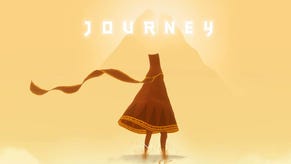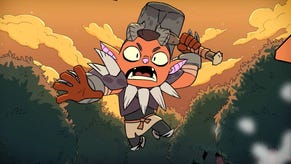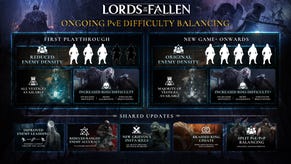Jenova Chen: Hardcore games are not useful, relevant or accessible
Lauded designer Jenova Chen, founder of thatgamecompany and creator of flOw and Flower, has described fighting and shooting games in harsh terms - but confirmed he enjoys and values them anyway.
In an interview on the US PS Blog, Chen said that fighters and shooters are "fun," but added, "What’s the point in pulling off another infinite combo? What does that do for your life? It's not useful."
He went on: "People still play chess because strategic thinking is useful. Brain training games, fitness games… these have relevance. People don't have much time to waste, so they want relevance. Whether it's emotional relevance, like experiencing joy or sadness, or intellectual relevance, or social relevance."
When asked which developers he felt were challenging players in relevant ways, Chen nominated Quantic Dream and Team Ico, and gave an honorary mention to Media Molecule.
Chen feels the usual twin-stick control system of action games is another barrier to accessibility.
"I have seen various non-hardcore players try a first-person shooter, and they couldn't even aim. The two-stick camera system, using them at the same time, is just very difficult. It takes time to train. And every time I see a player struggle with that, he just puts the game down."
Instead, Journey uses one analog stick to control the player character, one button each for "call" and "fly," and the Sixaxis controller's motion sensing capabilities to move the camera. Chen says this system is both more intuitive and makes for a better spectator experience.
"The other problem with a stick camera, particularly in a third-person game, is that people tend to adjust the camera very often and very rapidly. When I watch them play, I get dizzy. And I want people to be able to watch others play Journey."
Chen also spoke on thatgamecompany's approach to Journey's multiplayer, commenting that the decision to eschew a multiplayer lobby system was also partly motivated by accessibility questions.
"We make games for PS3 owners, but we also make games for their relatives or children. I don't think your grandma is going to know what a [multiplayer] 'lobby' means. I don't think most children will understand what [internet] 'latency' means," he said.
"We just wanted to create a more intuitive experience. If your grandma asked, 'What's Journey?' I'd tell her, 'Journey is just like hiking. You go to hike a mountain, and there are other hikers you might meet and if you like them you can hike with them.' And that's it."
Chen's musings on design shouldn't be taken to mean he feels there's no value in more traditional games: "It's not that I’m against fighting games or shooters — they need to be there," he added. "And they need to be good."
Journey is expected to release on the PlayStation Network this year, you'll find plenty of gameplay details through the earlier link.











.png?width=291&height=164&fit=crop&quality=80&format=jpg&auto=webp)






